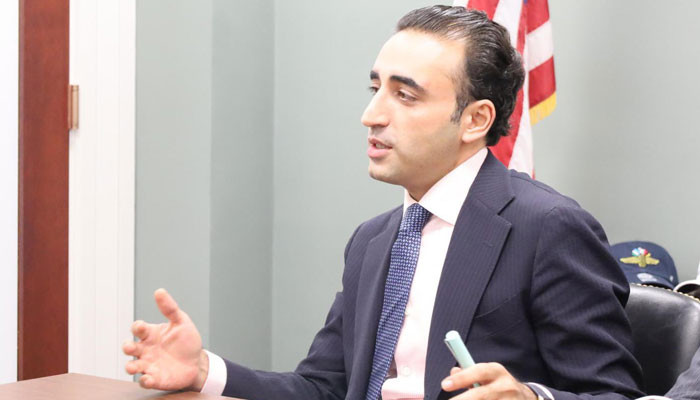Heightened Risk of War with India: Bilawal Bhutto-Zardari
Former Foreign Minister of Pakistan, Bilawal Bhutto-Zardari, has cautioned US legislators and diplomats regarding the increasing danger of a large-scale conflict with India. He emphasized that recent actions by India have significantly reduced the buffer for armed confrontation in the area.
His warning follows heightened tensions between Pakistan and India after an incident in Pahalgam, within Indian Illegally Occupied Kashmir (IIOJK).
In an exclusive interview with the New York Post, the Chairman of the Pakistan Peoples Party (PPP), acknowledged Washington’s contribution to securing a ceasefire.
“We deeply appreciate the role of the US government — President Trump, Secretary [of State] Marco Rubio — in helping us achieve this ceasefire during this crisis,” Bilawal stated.
“Our message has been that the ceasefire is just the beginning. We are seeking assistance in our pursuit of peace through dialogue and diplomacy.”
Bilawal added that the region’s safety has diminished due to India’s independent actions. “We are all less secure as a result of this conflict,” the PPP leader noted.
“The threshold for a full-scale military conflict between Pakistan and India has been substantially lowered—to its lowest point in our history because of this conflict.”
On April 22, an attack in Pahalgam, IIOJK, resulted in the deaths of numerous civilians. New Delhi attributed the attack to Islamabad, which Pakistani officials have refuted.
Following the incident, India initiated a unilateral operation, resulting in casualties among innocent civilians in unprovoked actions against Pakistan. After continuous unprovoked attacks, Pakistan’s military responded with Operation Bunyan-um-Marsoos, which Islamabad stated was an act of self-defense.
Pakistan claimed to have downed several Indian fighter jets and drones. A ceasefire agreement mediated by the United States concluded the conflict after a period.
Since the Pahalgam incident, Islamabad has repeatedly requested India to provide verifiable evidence and has advocated for an impartial investigation by international bodies.
Speaking in London on June 9, Bilawal commented, “India accused Pakistan of involvement in the Pahalgam attack without providing any substantiating evidence. We proposed an independent international inquiry into the incident.”
The Pakistani delegation that visited Washington recently stated Pakistan’s willingness to collaborate with India on counterterrorism efforts. However, they firmly denied any involvement in the recent attack in IIOJK.
“The Prime Minister of Pakistan suggested an unbiased international inquiry because we were certain that Pakistan had no involvement in this terrorist incident,” Zardari mentioned.
“The global intelligence community supports this perspective.”
“As the situation stands, any terrorist attack in India immediately implies war, and the principle of reciprocity dictates that a terrorist attack in Pakistan should also be regarded as an act of war,” he continued.
The politician also cautioned that India’s threat to disrupt Pakistan’s water supply is a significant concern, terming it “an existential matter” that would be considered “an act of war.”
“If we are to initiate a new dialogue with India and make new commitments that could potentially lead to new treaties, it is imperative that they adhere to existing treaties like the Indus Water Treaty,” he stated.
Following visits to Washington, New York, and London, the high-level parliamentary delegation from Islamabad has arrived in Brussels.
The delegation, led by Bilawal, will engage with senior officials from the European Union and Belgium during their visit to Brussels.
The delegation aims to highlight New Delhi’s provocations and aggression against Islamabad, informing European authorities about India’s intentions and aggressive actions toward Pakistan. The delegation is also scheduled to meet with leading European think tanks and international media representatives in Brussels.



Comments (0)
No comments yet. Be the first to comment!
Leave a Comment